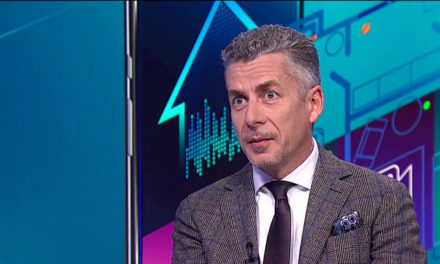The majority of German citizens consciously do not want to deal with the supposedly great challenges of the world, they are not interested in the so-called climate catastrophe or the war in Ukraine. He is completely disillusioned with the politics of the green-woke elite, he has no hope for the future, and even thinks that we are living in the end times. His only hope is his family and personal prosperity.
These catastrophic realizations for the Social Democratic-Green-Free Democratic political leadership can be attributed to a recent study by the renowned Rheingold Market Research Institute, which was made public at the end of July. In the following, the most important findings of the study will be discussed.
The respondents between the ages of 18 and 65 corresponded statistically to the regional distribution of the country.
73 percent of the participants are convinced that "our politicians have no idea what they are doing".
86 percent believe that big crises should be solved by politics, not by individual citizens. Since politics is not capable of this, only 34 percent trust the government.
"There is a huge gap between the steps citizens consider politically necessary and the performance of politicians in office"
- says the study.
So it is no wonder that only 23 percent of the participants believe in a better future. It says a lot about the state of the country and the perception of the political leadership that 53 percent agreed with the following sentence:
"Seeing political developments and the mood of society, I would most like to emigrate."
Most people look for a solution where the world is still somewhat in order: at home. The great majority of those surveyed, 87 percent, find comfort in their personal environment, 73 percent trust in the future in areas that depend on their own determination and activities, for example in the field of work, study, and further training.
59 percent feel that the country's crises are growing beyond its ability to perform, 68 percent have withdrawn completely and just want to be left alone.
31 percent try to completely exclude the outside world from their lives, considering their family and private life much more important than politics or the news. He does not listen to the radio, watch TV or read newspapers. Most people don't even want to know about global crises, such as the war in Ukraine. Only 39 percent are regularly informed about world events.
Five topics are of most interest to people between the ages of 18 and 65: Inflation comes first (51%), followed by the fear of impoverishment in old age (46%), climate change (43%), the housing shortage (41%) and the energy crisis (41 %). The great majority are absolutely not interested in the "global challenges", they cannot be reached with the utopia of the "great transformation". More than half of the respondents do not feel that it is their task to work on the solution of so-called "social challenges". There is a huge contradiction between private optimism (87%) and political pessimism (77%).
It is a widespread perception that we are living in the last days of the old Germany, and most citizens are only alive to the hope that the living conditions they know and love will continue to exist for a while.
There is not even a trace of enthusiasm for a new future. Most people fear the loss of personal autonomy, the repetition of the helplessness felt in the aftermath of the covid crisis and the war in Ukraine. The fear of a dramatic worsening of the social situation obviously far outweighs the (artificially fueled) fear of climate catastrophe. Those surveyed are more aware of the social tensions caused by politics: 84 percent have the experience that the people around them are becoming more and more aggressive.
The former pride in Germany's achievements has almost completely disappeared, instead gloomy visions of the future prevail.
Only one-third of those surveyed hope that the country's fate will turn for the better, and barely 20 percent trust that the German sense of community will ever return.
It is particularly interesting that for the majority of Germans, i.e. 57 percent, the climate crisis is not one of the important issues, in fact, according to 44 percent, politics deals with this issue too much. In addition to migration (about which the opinion poll did not ask the participants at all for some reason), the climate fight mostly incites social tensions.
Another survey conducted in May also reached the same result, which sought the answer to whether German citizens support the terrorist actions of climate activists. While 68 percent still supported the climate movement in 2021, the number of supporters has now dropped to just 34 percent. Only 25 percent agreed with the statement that "the members of the climate and environmental movement represent the interests of the entire society".
Of course, the results of the surveys can be interpreted in different ways.
In any case, the firm rejection of the government and the entire political elite is clear, there is nothing to explain. That is why the system media is deeply silent about this.
If anything at all was published on the subject, the interpretation of the overall picture was that the people do not know what is good for them, do not allow themselves to be mobilized, and because of their narrow-mindedness do not understand that our vision leads to the only true salvation. The authors of the survey are also of the same opinion, they gave their study the title "Escape from reality".
Of course, another interpretation is conceivable. The vast majority of German citizens intellectually and emotionally reject the policies of the government and the green elite. This majority has a very sober view of reality, the situation of themselves and the country. He partly does not believe the various hysteria stirred up by the elite, but at least he does not follow them, and he still hopes that he can somehow escape their consequences. Although he is angry, he has resigned himself to his fate for the time being, because his existence is not yet at stake.
It's just that he's not narrow-minded, but tries to stay away from propaganda - as long as he can.
But the political and financial pressure - mainly due to the rapid economic collapse and the intensification of the robbery campaign against the citizens - is increasing. The passive resistance chosen by the German citizen, which is depicted in the study, will not be sustainable for long.












